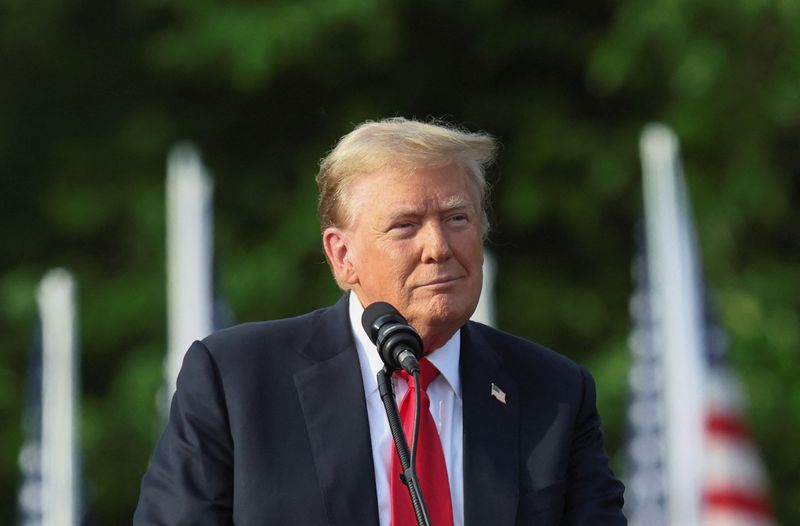Investing.com -- U.S. Treasury yields remain resilient much to the surprise of many as the current political uncertainty usually stokes buying pressure in bonds, but Macquarie offers up a simple explanation: A rising prospect of a Trump election victory.
"It's no coincidence that UST bond yields have risen alongside the improved prospect (since late last week) that Donald Trump will win the US presidency," Macquarie said in a recent note, forecasting that a Trump Administration 2.0 is likely to be more inflationary than a Biden 2.0 administration.
U.S. Treasury bonds, which trade inversely to yields, have been in a slump since last Thursday's presidential debate ... despite a period of incoming U.S. economic data -- including PMIs, initial jobless claims and inflation -- that has been soft, Macquarie says, likely because of Trump's chances of winning are on the up and up.
U.S. Treasury yields have tracked higher as "Trump's probability of winning has risen, and because his domestic and international economic agenda involves a few key things that can be deemed to be more 'inflationary' than Biden's agenda would be," Macquarie added.
A potential Trump Administration 2.0 may likely include an agenda that takes a tougher stance on immigration, more aggressive trade tariffs and potential tax cuts that could loosen the noose around inflation.
Trump's agenda on immigration, Macquarie speculates, may restrict immigration more effectively than Biden's, and the former president may implement the removal of undocumented immigrants, taking about 1 million workers out of the work-force. This would "reduce the low-cost labor supply, putting upward pressure on wages, at least in the market's imagination," Macquarie adds.
Trump has been vocal about the need to ramp up tariffs on China and rest of the world, are expected to cause import price to rise -- and by one estimate from Moody's (NYSE:MCO), could be result in a 0.7% increase in CPI inflation in the year after the tariffs are enacted.
On tax cuts, meanwhile, it is likely that Trump would extend the Tax Cut and Jobs Act of 2017 beyond its sunset period of 2025, pushing the federal deficit higher than it otherwise would be under Biden," who would allow the tax cuts to sunset, Macquarie said.
